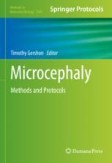Search
Search Results
-
Quetiapine improves sensorimotor gating deficit in a sleep deprivation-induced rat model
BackgroundSleep deprivation (SD) impairs pre-stimulus inhibition, but the effect of quetiapine (QET) remains largely unknown.
Objective ...
-
Prefrontal allopregnanolone synergizes with D1 receptor activation to disrupt sensorimotor gating in male Sprague-Dawley rats
Abstract RationaleThe prepulse inhibition (PPI) of the startle reflex is the best-established index of sensorimotor gating. We documented that the...

-
Evaluation of Sensorimotor Gating Deficits in Mice Through Prepulse Inhibition (PPI) of the Startle Response
Prepulse inhibition of the startle response enables measuring animal behavior and helps us understand core aspects of neuropsychiatric diseases....
-
Treatment with the calcineurin inhibitor and immunosuppressant cyclosporine A impairs sensorimotor gating in Dark Agouti rats
RationaleCalcineurin is a protein regulating cytokine expression in T lymphocytes and calcineurin inhibitors such as cyclosporine A (CsA) are widely...

-
Pharmaco-toxicological effects of the novel tryptamine hallucinogen 5-MeO-MiPT on motor, sensorimotor, physiological, and cardiorespiratory parameters in mice—from a human poisoning case to the preclinical evidence
RationaleThe 5-methoxy-N-methyl-N-isopropyltryptamine (5-MeO-MiPT, known online as “Moxy”) is a new psychedelic tryptamine first identified on...

-
The relationships between motor behavior and sensory gating in the ball rotation task
During voluntary muscle contraction, sensory information induced by electrostimulation of the nerves supplying the contracting muscle is inhibited...

-
MAM-2201 acute administration impairs motor, sensorimotor, prepulse inhibition, and memory functions in mice: a comparison with its analogue AM-2201
Rationale1-[(5-fluoropentyl)-1 H -indol-3-yl](4-methyl-1-naphthalenyl) methanone (MAM-2201) is a potent synthetic cannabinoid receptor agonist...

-
The adenosine A(2A) receptor agonist CGS 21680 alleviates auditory sensorimotor gating deficits and increases in accumbal CREB in rats neonatally treated with quinpirole
Rationale and objectiveThe adenosine A(2A) receptor forms a mutually inhibitory heteromer with the dopamine D 2 receptor, and A(2A) agonists decrease...

-
Ketamine abrogates sensorimotor deficits and cytokine dysregulation in a chronic unpredictable mild stress model of depression
Major depressive disorder (MDD) is a serious mental disorder with influence across the functional systems of the body. The pathogenesis of MDD has...

-
Testing Prepulse Inhibition of Acoustic Startle in Rodents
Prepulse inhibition (PPI) is a measure of sensorimotor gating which is widely used in rodents to study information processing and attention...
-
Chronic Exposure to WIN55,212-2 During Adolescence Alters Prefrontal Dopamine Turnover and Induces Sensorimotor Deficits in Adult Rats
Several lines of evidence suggest that chronic exposure to cannabinoids during adolescence may increase the risk of schizophrenia. Studies of the...

-
Neonatal Behavioral Screen for Mouse Models of Neurodevelopmental Disorders
Behavioral phenoty** approaches for neonatal mice are important for investigating early alterations in brain development and function, relevant to...
-
Baseline prepulse inhibition dependency of orexin A and REM sleep deprivation
RationalePrepulse inhibition (PPI) impairment reflects sensorimotor gating problems, i.e. in schizophrenia. This study aims to enlighten the role of...

-
Metabotropic Glutamate Receptor 2 and Dopamine Receptor 2 Gene Expression Predict Sensorimotor Gating Response in the Genetically Heterogeneous NIH-HS Rat Strain
Disruption of sensorimotor gating causes “flooding” of irrelevant sensory input and is considered a congenital trait in several neurodevelopmental...

-
PDZD8-deficient mice manifest behavioral abnormalities related to emotion, cognition, and adaptation due to dyslipidemia in the brain
Although dyslipidemia in the brain has been implicated in neurodegenerative disorders, the molecular mechanisms underlying its pathogenesis have been...

-
Antipsychotic drug efficacy correlates with the modulation of D1 rather than D2 receptor-expressing striatal projection neurons
Elevated dopamine transmission in psychosis is assumed to unbalance striatal output through D1- and D2-receptor-expressing spiny-projection neurons...

-
Neuropathological and behavioral features of an APP/PS1/MAPT (6xTg) transgenic model of Alzheimer’s disease
Alzheimer's disease is associated with various brain dysfunctions, including memory impairment, neuronal loss, astrocyte activation, amyloid-β...

-
Comparative Analysis of Indicators of the Early Stages of Sensory and Sensorimotor Information Processing in Aggressive and Nonaggressive Schizophrenia Patients
Objective. To study the characteristics of the early stages of sensory (inhibition of the P50 event-related potential) and sensorimotor (prestimulus...
-
Associations between sensorimotor gating mechanisms and athletic performance in a variety of physical conditioning tests
PurposeThe elite athlete is fine-tuned all around to deliver favorable results in sporting events. In this study, we address the question of whether...

-
Effects of prepulse format and lead interval on the assessment of automatic and attention-modulated prepulse inhibition
Prepulse inhibition (PPI) of the acoustic startle response can index automatic and attention-modulated aspects of sensorimotor gating. Automatic...

